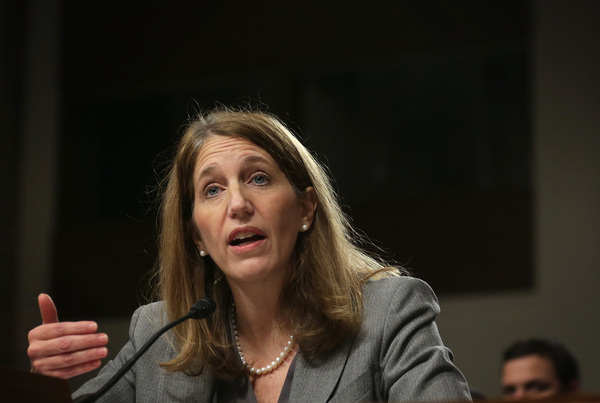Fall enrollment efforts could be pivotal for federal health law
Go Deeper.
Create an account or log in to save stories.
Like this?
Thanks for liking this story! We have added it to a list of your favorite stories.

Rate hikes are likely on the way for insurance plans issued under the Affordable Care Act, health policy analysts say. Consumers' out-of-pocket costs are expected to climb in 2017 and some major insurers have signaled they are pulling out of the health insurance exchanges in a number of states. In a meeting Wednesday with reporters and representatives of groups working to increase enrollment in the health plans, Department of Health and Human Services Secretary Sylvia Burwell acknowledged that the Affordable Care Act's fourth enrollment season — scheduled to begin Nov. 1 and run until Jan. 31 — is a pivotal time for the federal health law.
"Building a new market is never easy," she told the group at HHS headquarters. "We expect this to be a transition period for the marketplace. Issuers are adjusting their prices, bringing them in line with actual data on costs."
Burwell's comments foreshadow the higher premiums expected when federal officials release details on the health plans to be offered on HealthCare.gov for 2017. Those details are likely to come just days before a presidential election that could determine whether the ACA is repealed or revamped. While the health law hasn't been a central issue in the current election season, it has been at the center of a bitter battle between political parties since it was passed in 2010. The House of Representatives has voted more than 60 times to repeal all or part of the measure. The law has survived some court challenges and faces others.
Burwell noted those fights Wednesday when talking about issues that arose in the law's implementation. "It also hasn't helped," she said, "that at nearly every turn, we've had to overcome partisan attempts to repeal and undermine the law through legislation and litigation."
Turn Up Your Support
MPR News helps you turn down the noise and build shared understanding. Turn up your support for this public resource and keep trusted journalism accessible to all.
Enrollment in the state and federal marketplaces is expected to grow by about a million people next year — from about 12.7 million to 13.8 million, according to federal estimates released Wednesday. The number of consumers who actually pay premiums and stay in the market is expected to average about 10.5 million per month in 2016 and about 11.4 million per month in 2017.
Consumers flow in and out of ACA plans because they change jobs, get coverage from other sources and face other factors that affect where and how they enroll in health insurance, including affordability. About 9.2 million of the 13.8 million people who now have ACA coverage are expected to reenroll, according to HHS.
This year, Burwell said, health officials working to increase insurance coverage among the uninsured are intent on making the enrollment process faster and simpler, and will particularly focus on signing up healthier consumers – including people between the ages of 18 and 34, who tend to have fewer ailments. They will also remind consumers of the penalty for not having coverage, which for adults in 2016 is $695 or 2.5 percent of income, whichever is higher. The flat penalty will be adjusted for inflation in 2017. Federal officials are also focusing enrollment efforts on the 5.1 million Americans who are eligible to purchase health care coverage on the exchanges but buy it elsewhere, according to HHS figures. Of that group, 2.5 million people could be eligible for the law's financial assistance if they sign up for coverage during open enrollment, which ends Jan. 31. The outcome of the November elections may well determine the future of the ACA. Republican presidential nominee Donald Trump has promised to repeal and replace the law, while Democratic nominee Hillary Clinton has said she wants to fix the law, making it more affordable for consumers who don't qualify for subsidies, yet struggle to afford coverage.
Burwell called on Congress to work with her and the Obama administration to make needed changes to the law. "To make more substantial changes — like a public option to encourage competition — we'll need cooperation from Congress," she said. "And we are hopeful that soon, we'll see more bipartisan efforts to make improvement."
Bipartisan cooperation isn't likely to happen until the next Congress meets, if then. Much will depend on the outcome of the presidential and congressional elections – on who is in power and whether GOP leaders think the ACA is still a potent political issue, as well as on how willing Democrats are to make changes that appeal to Republicans.
Mary Agnes Carey reports for Kaiser Health News, an editorially independent news service that is part of the nonpartisan Henry J. Kaiser Family Foundation.
Copyright 2019 Kaiser Health News. To see more, visit Kaiser Health News.


